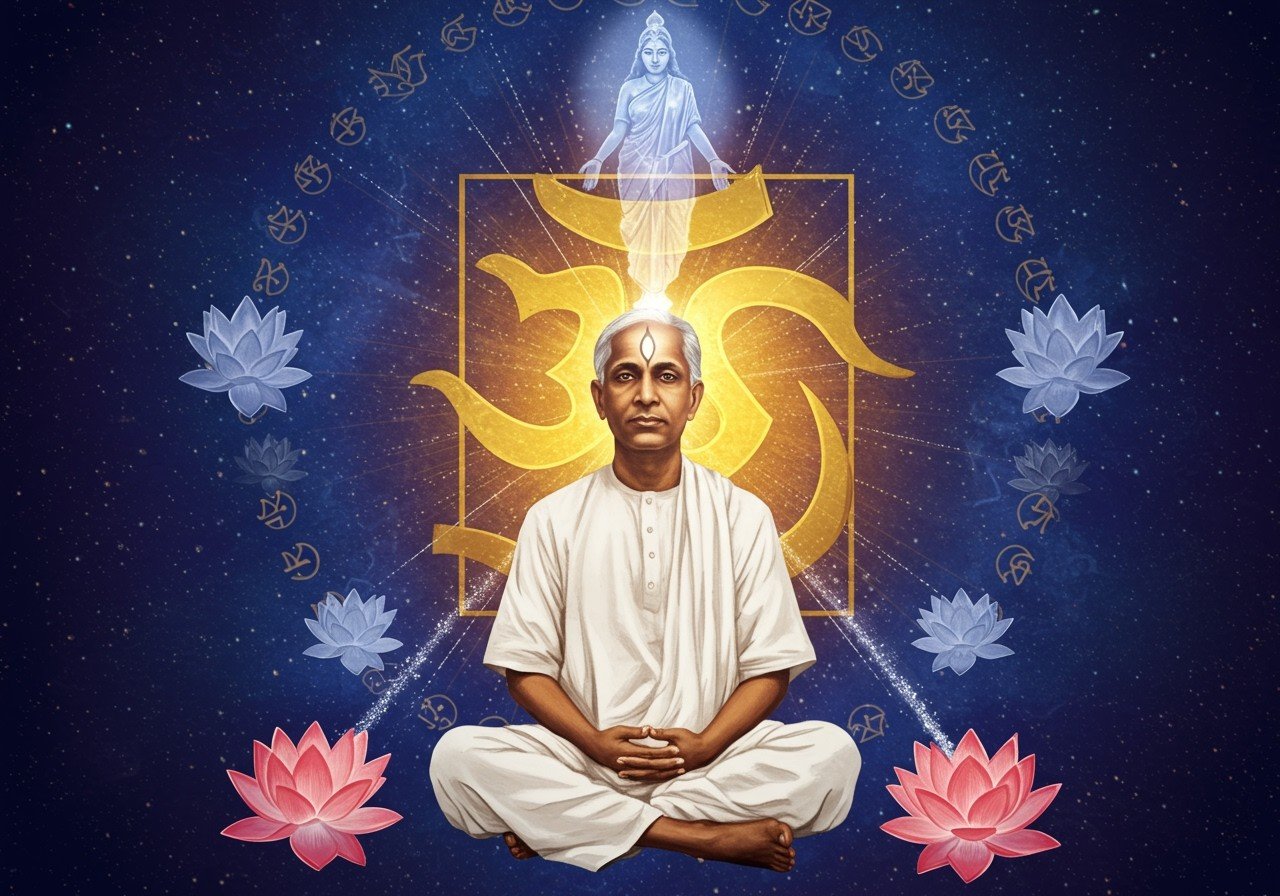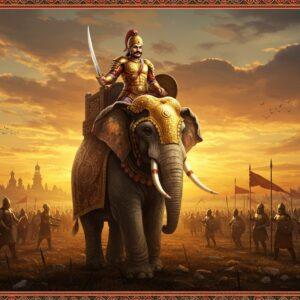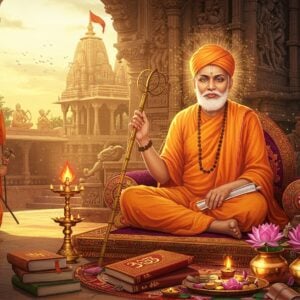
Sri Aurobindo Ghosh, a philosopher, yogi, and poet, stands as a beacon in Indian spirituality. His transformation from a revolutionary figure to a spiritual guide highlights his impact on modern spiritual practices. His teachings, especially Integral Yoga, continue to inspire countless individuals on their quest for self-discovery and spiritual evolution.
Early Life and Influences
Born in Calcutta in 1872, Sri Aurobindo experienced a blend of Indian and Western education. His time at St. Paul’s School and King’s College, Cambridge, exposed him to diverse perspectives. Returning to India, he became a prominent voice in the independence movement, leading nationalist activities in the early 20th century.
The Spiritual Awakening
A pivotal moment in Sri Aurobindo’s life was his imprisonment. This period of introspection became a catalyst for his spiritual exploration. The experience was deeply transformative, marking a shift from political action to spiritual pursuits. In 1910, he sought refuge in Pondicherry. The serene atmosphere fostered his spiritual growth and led to the development of his Integral Yoga philosophy.
Understanding Integral Yoga
Sri Aurobindo’s Integral Yoga is a holistic approach seeking to harmonize the physical, vital, mental, and spiritual aspects of our being. Unlike traditional yoga, it aims not just for liberation but also for the transformation of human consciousness and the manifestation of a divine life on Earth. Discover more about holistic wellbeing approaches here.
Integral Yoga emphasizes aspiration, inward concentration, and opening oneself to the Divine Power. It moves away from rigid meditative forms and encourages an inner journey towards union with the Divine and transformation of human nature.
- Core Idea: The core of Integral Yoga is the manifestation of the Supermind on Earth. Sri Aurobindo believed human evolution is a work in progress, and yoga accelerates the evolution of consciousness, revealing our inherent divinity.
- Method: This yoga doesn’t stick to fixed mental exercises or meditation styles. It stresses aspiration, inner focus, and receptivity to Divine Power, fostering a personal and evolving connection.
- Transformation: Integral Yoga isn’t just about liberating the soul; it’s about transforming the mind, life, and even matter, infusing them with divinity. It’s about a complete, holistic change.
- Integral Approach: Taking the best from various yoga paths, this approach aims for a complete experience of our whole being, acknowledging and integrating all our facets.
- Stages of Ascent: Sri Aurobindo charted the journey of consciousness from the human level upwards. He identified stages like the higher mind (silence), the illumined mind (vision), and the intuitive mind, each a step closer to the Divine.
- Triple Transformation: Integral Yoga speaks of a three-fold transformation: the Psychic, connecting us to our inner self; the Spiritual, linking us to the Divine; and the Supramental, bringing the Divine into our earthly existence.
- Four Elements of Transformation: This journey involves the psychic opening, embracing our inner wisdom; the transit through the occult, navigating hidden realities; the spiritual release, freeing ourselves from limitations; and the supramental perfection, embodying the Divine in our lives.
Literary Contributions
Sri Aurobindo’s philosophical works, including “The Life Divine” and “The Synthesis of Yoga,” explore the evolution of consciousness and the potential for a higher spiritual life. “Savitri,” his epic poem, reflects his profound vision of human evolution. These writings offer a roadmap for those seeking enlightenment and personal transformation. You can find a selection of spiritual books, including those by Sri Aurobindo, at poojn.in.
Words of Wisdom
Sri Aurobindo’s quotes offer glimpses into his spiritual insights. “All life is yoga,” he said, reminding us that every aspect of life can be a step towards spiritual growth. Another powerful quote, “The mind has to be silent and quiet; then only it can reflect the higher consciousness above,” emphasizes the importance of inner stillness. These quotes resonate deeply with spiritual practitioners today. Explore the power of mantra chanting for inner peace and spiritual connection.
Enduring Legacy
The Sri Aurobindo Ashram in Pondicherry stands as a testament to his enduring legacy. This spiritual community continues to preserve and share his teachings. Sri Aurobindo’s ideas have influenced countless spiritual movements and continue to inspire seekers of personal and spiritual growth.
Poojn.in: Supporting Your Spiritual Journey
At poojn.in, we understand the significance of authentic spiritual materials. We offer a curated selection of items to support your spiritual practice, including:
- Sacred Texts: Find a range of spiritual books, including works by Sri Aurobindo, to deepen your understanding and practice. Browse our collection of spiritual books.
- Meditation Aids: Enhance your meditation practice with cushions, mats, and incense holders, creating a serene and focused environment. Explore our range of meditation aids.
- Pure Incense: Create a sacred atmosphere with our selection of pure incense sticks and dhoop. Discover our collection of incense.
Visit www.poojn.in or connect with us at 03369029784 (call) or 9476142738 (WhatsApp) for personalized assistance.
Conclusion: Embracing the Path of Transformation
Sri Aurobindo’s life and teachings offer profound wisdom for personal and spiritual growth. His journey from political activism to spiritual leadership demonstrates the transformative power of inner exploration. His Integral Yoga invites us to integrate all aspects of our being and recognize the divine potential within. May his teachings illuminate your path towards self-realization.


